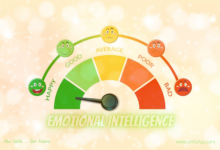
Practical Guidance Help Transform Conflict Into An Opportunity For Innovation And Creative Problem-Solving
At the end of each working day, I review all the events I encountered. Many situations that occur to me during the day come to my mind. I sometimes feel confused about some decisions or reactions that I have taken towards some problems, so I stop for a moment and ask myself some questions. Was the decision that I took correct?. Does the difference of views call for conflict between the owners of different opinions?
Converting the Path of Conflict
Sometimes we make prejudices without allowing ourselves to think beyond some conflicts and without seeking excuses for others and thinking about them and the circumstances that necessitated their behavior in a certain way. The basic principle is that differences of opinion do not spoil the issue of intimacy. But in reality, what is happening is the opposite. Not everyone accepts the difference of opinion, especially if there is a superior and a subordinate. Why don’t we start thinking about converting the conflicts that sometimes confront us in civilized ways that guarantee our respect for ourselves and others?
Within organizational conditions, conflicts arise between employees, departments, and organizations themselves, leading to a hostile atmosphere within the organization.
Conflicts can occur due to interdependence between tasks, individual qualities, lack of resources, salary issues.
There are two types of conflict, constructive and destructive, and the outcomes of these two types are very different.
While constructive conflict leads to a positive outcome that mainly involves conflict resolution, destructive usually end with adverse effects.
Conflict Management
When conflicts arise, it does not mean that it is a standard-issue, and failure to resolve or direct it does not affect your standing and respect as a business leader. Instead, being careless and leaving things alone will not promote creative problem-solving. And allowing an argument to get too emotional can cause lasting damage to relationships, reduce productivity and weaken team cohesion.
So, how can you support a friendly discussion between managers and employees without it escalating? What are some tips to keep in mind when engaging in these conversations? How can you ensure that conflict is constructive and productive?
Here are some practical guidance that can help you Convert conflict into an opportunity for innovation and creative problem solving:
1. Change the way you think.
One of the top ways to use conflict constructively is to change how you think about it. Don’t take it personally. Instead of seeing the person, you disagree with as an opponent, think of them as someone who has a different idea or a new approach to the problem at hand.
Instead, focus on the problem and how you can develop a solution that works for everyone. As much as possible, look for areas of agreement and build on them.
2. Pay attention to the word “but.”
When a conflict arises, it is crucial to monitor your language to avoid overly passive or agitating. In particular, be aware of when you use the word “but.”
If you say, “OK, but…” all the other person hears is, “But that’s why you got it wrong.”
Make the conversation positive by talking about threats and opportunities. Complete the other person’s idea honestly. Show your respect and ask questions to see what the other person is thinking. Then give his point of view real attention. Otherwise, it’s just talk, which is often insincere. It will help you reconcile opinions, improve your ideas, and find a creative solution. Regardless, you encourage everyone to be open to alternative viewpoints, and you’re headed toward a positive outcome together.
3. Rely on information
One of the best ways to control emotions is to rely on information when discussing the topic of conflict. By relying on quantitative rather than qualitative data, you help solve the right problem for the right reasons, rather than responding to feelings of intuition.
Taking feelings out of the equation helps everyone see the situation more clearly and put the problem at hand as a mere action. But it does mean being close when dealing with complex issues. Whatever the topic, show empathy and be sure to communicate respectfully and professionally.
4. Practice and enhance self-awareness
Generally, when we conflict with someone at work, we are resisting something. It applies to everyone, from CEOs to frontline employees. If you find yourself or others avoiding and resisting change, it is a good practice to stop and find out what’s behind your resistance and encourage others to do the same. When you can identify and communicate the basis for your opposition, you can begin To find a solution that meets business objectives.
5. Avoid generalizations
Clear and specific language paves the way for constructive conflict. Steer clear of generalizations if you want to find common ground and reduce emotional reactions to what you have to say. Nobody likes blanket statements that describe them or make false assumptions about their ideas.
6. Seek understanding, not final agreement
Frequently, people avoid conflict at work because they think about the absolute.
However, understanding other points of view should be the priority when conflict arises rather than finding a final solution.
After all, 100% consensus may not be possible or even desirable because constructive conflict can lead to new and innovative solutions to business problems. Agreeing not to agree is not always a bad thing, as long as you can reach a compromise that is in the organization’s best interest.
Instead of focusing on a final solution, make a decision that balances the needs of most departments or employees. Focus on optimum productivity and efficiency by looking at the facts. It allows everyone to feel respected and heard and helped avoid resentment that eats up positive energy and hinders teamwork.
Finally, I invite everyone to start with themselves and help others realize that they can change their attitudes to become more positive and have the best of all.



